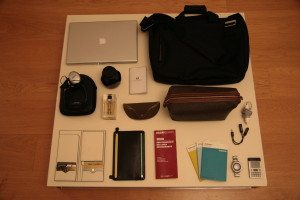Jetsetting Jobs
[dropcap]M[/dropcap]aaike Spiekerman chats to several jetsetting professionals about what they do, where they’ve travelled, and advice they have for students wishing to travel in their jobs.
International Hotel Manager
Rob Spiekerman
What is your job, what does it involve, and why did you choose this career?
My job title is General Manager of the Intercontinental Nanjing and Regional General Manager of Jiangsu for Crowne Plaza and Holiday Inn Brand Family. As General Manager of the hotel, I run and am responsible for a business unit of 175 million RMB revenue. This means creating business plans with annual operational budgets and a three-year strategic plan. I give daily guidance to a team of 600 dedicated employees in the hotel, as well as to the 17 hotels we have in the region.
The job, especially in the hotel, is to set the direction and goals as well as provide the team with guidance, resources, and coaching to get there. As a team we have goals on quality and guest satisfaction, employee satisfaction, financial performance, market penetration and brand preference, people management, social media, environmental goals etc.
I chose this career because I love what I do. When I graduated I was 21 years old, and pension is normally around 65 years, so you need to do something you really like. What gets you out of your bed? The variety of things we do daily (people management, finance, marketing, social media, F&B, international meetings, local weddings, meeting heads of state and leisure guests) is what I like. Not one day needs to be the same. You can also travel from country to country and add a cultural aspect, from brand to brand and learn more about consumer insight, etc.
In short, I have the best job in the world, but I have to say I’ve also made it the best job in the world as I love what I do!
What are some of the countries you’ve travelled to for your work, either to live or on visits?
Oh boy, that will be quite a list! We lived in The Netherlands, Belgium, United Kingdom, Austria and China. I have travelled to The Netherlands, Belgium, Luxembourg, France, Italy, Spain, Switzerland, Austria, Germany, Sweden, Finland, Poland, Romania, Greece, Israel, Turkey, Serbia, Bosnia Herzegovina, Bulgaria, Czech Republic, Slovakia, Kazakhstan, Azerbaijan, Kyrgyzstan, United States, Russia, China & Hong Kong and Singapore.
Is there a country that stands out for you, a favourite country or otherwise very memorable experience?
There are several countries that stand out for me but for different reasons. In Austria it was the quality of life, the nature, skiing, and how easily you could travel to other countries. In Belgium, the rich hospitality and food, in the UK the great variety between several parts of the country, the rich history, the country life; in Turkey, warm hospitality, warm people and like the Dutch very much focused on trade;
Greece, to help a friend , almost blind, to build a hotel. He is the oldest child and had to take over the family business. He wanted to impress his old father and wanted to build a new Crowne Plaza hotel. I helped and guided him. When we opened the hotel I was asked as special guest for the opening speech and opening of the hotel with the Minister of Tourism; Bosnia, with the history of the olympics and the cruel war. There’s bullet holes in every building, and a lot more women than men because so many were killed, and people are still so tolerant and kind; the first travel to the Stans, opening the first international hotels and building relationships, providing a future for young people in a new industry.
What is your favourite part of your job?
My favorite part of the job is the variety of roles in a day. There is never a dull moment and this coupled with the travel and cultural experiences (and meeting other people) is what makes this the best job in the world.
What advice do you have for students?
If you want to do something, go and do it with full commitment and with an attitude of “Yes I can and yes I will.” It shows your commitment, you get the most out of it and can enjoy your achievements. Make sure you choose something you really like to do as you have to do this for a long time. If you enjoy it and are passionate about it, it is easier to get the maximum out of it.
International Teacher
Jack Light
What is your job, what does it involve, and why did you choose this career?
I am a teacher and Head of Humanities, in Doha, Qatar, my fourth International posting.
What are some of the countries you’ve travelled to for your work, either to live or on visits?
All of Western Europe, Poland, Hungary, Turkey, Qatar, China, Thailand, Sri Lanka, Bali, Inner Mongolia, Cambodia, and Vietnam.
Is there a country that stands out for you, a favourite country or otherwise very memorable experience?
Everywhere is unique, and wonderful in its own way. Top of the charts is Santorini, Greece, Angkor Wat, and Bali. I love history and meeting people, and each site offers incredible opportunities for both.
What is your favourite part about your job?
Working with young minds, it helps me not feel a million years old. It is so energizing when a student latches onto a tricky concept, I feel like I have accomplished something. Also, I love to meet people, and this job is perfect for it.
What advice do you have for students?
Never stop learning, challenge authority, don’t settle for second-best. If what you are doing isn’t fulfilling and doesn’t make you happy, you need to do something else.
International Paper Sales
Andre Hüttner
What is your job, and why did you choose it?
I am a Director of Product and Process Management for a supplier to the paper making industry. Honestly, I grew into that job and really like it. In the past I worked in a paper mill, running paper machines. I did not want to spend my whole life in this noisy, dirty and dangerous area, so I went to the supplier industry. Speaking the “paper-making” language helped me a lot to get into that business. Managing a product means also managing people and that is what I really enjoy. My drive to foresee market developments, requirements and work on strategies requires me to be in the market, which means you have to travel all around the world. You cannot manage a product and people from your desktop.
Honestly, I did not know that I wanted to travel so much, but today I can say that I cannot work without travelling. The right balance is important!
Where have you travelled to, and where was the most memorable place?
I’ve travelled to basically every country in Europe, to North America, and to many places in Asia, having lived in China for three years. One of my favorite travel experiences was in Israel a couple of years ago. A meeting was cancelled, so I had the opportunity to explore the country and people. I have to say it was great and strange. Seeing so many peaceful places and knowing the political situation did and does not really fit together.
In general I remember people more than places. My customers are not located in tourist areas, so learning as much as possible from different cultures and trying the local food is what I love to do!
Do you have any advice for students?
Use the opportunity to learn about different cultures, always try the local food, when you are in a foreign country you’re always a guest, so don’t say what your customer has to do; challenge your customers to try different things, when you have a family, balance your travels. Moments when your children grow will never be repeated. When you travel, you see only airports, hotels, highways and your customers! Don’t expect to have enough time for the fun part.
Data and Systems Manager
Martijn Van Dijk
What is your job, what does it involve, and why did you choose this career?
I am Principal Data and Systems Manager for a mobile telecommunications provider. I am responsible for all billing systems within Vodafone Global Enterprise. I studied Telecommunications, after which I did something similar in the army. After that I worked respectively for Ericsson and Vodafone in the Netherlands.
Which countries have you travelled to, and which has been your favourite?
Mexico, Brazil, Singapore, United States, almost all European countries, Egypt etc. The USA has been my favourite.
What advice would you give students?
Be open to other cultures. First invest in your relations and your first work experience, and then look at which direction and where you want to go.
Tour Operator
Marjoke Wubben
What is your job and why did you choose it?
I work as Operations Manager with a tour operator which sells tailored holidays in which experience is the key factor. I’m responsible for the sales experts (the ones who tailor-make the trips based on the customer’s wishes), the product managers (they ensure that the necessary contracts are made with suppliers abroad for an exclusive product and that knowledge of the product goes to the sales experts), operations support, and Human Resource Management.
I came to this sector by coincidence. The sector is related to the hotel industry, a branch that I love and that will always be of interest to me. During my work in the hotel industry I found that liked travelling for my job.
My way of travelling has definitely been influenced by my work. I’ve become interested in safaris and horse-riding trips. I hadn’t been interested in safaris before and was unaware of the many horse-riding opportunities in faraway destinations.
Do you have any advice for students?
Don’t only go for the trip, but also go for the culture. Don’t let yourself be scared off, but inform yourself beforehand about the culture in a country and be open to it. You can learn so many incredible things from this!
Ministry of Foreign Affairs
Berry Spaan
What is your job?
I work in the civil service for the Ministry of Foreign Affairs at a regional support office in Amman. The regional support office does the financial and visa administration for 16 Dutch embassies in the Middle East and North Africa. My current function is senior financial advisor. Before this, I’ve worked at a variety of Dutch embassies. I have also worked with the Royal Marines for 15 years.
Have you always wanted to travel?
I don’t think I’ve always wanted to travel. It’s not something I took from home. My parents have always worked hard and we never went on holidays abroad. After my secondary school I had to complete my military duty. This went well, and after my military duty I chose for an administrative job with the Royal Marines (KM). After a couple of years getting experience in barracks I had to go sailing, and I think this is where my love of foreign countries was born. Onboard the fregat I saw western Europe. The ship was later stationed in the Caribbean for half a year.
There is a large difference between travelling for your work and moving with all your belongings to live abroad. I’ve not always been fond of travelling for my work: long waiting times at airports, a short trip somewhere, and making a lot of hours to get the work done. There is hardly any time left over to go and see something.
I find living abroad great: new surroundings, new cultures, people, friends, and it’s usually completely different from what you imagined. My family has also become a lot closer through this, because after every move you’re dependent on your family.
There is also the possibility to travel in the countries and the neighbouring countries. You travel to places you maybe wouldn’t usually go on holiday.
Where have you lived for your work and which place was your favourite?
We’ve lived in the USA, Ivory Coast, Rwanda, Austria, Egypt and Jordan. Every country has its own story. In the USA we travelled a lot. Ivory Coast was very special, partially because civil war that broke out while we were there. Rwanda wasn’t easy, we came nine years after the genocide and the population was – and maybe still is – traumatised. Austria…Vienna as cultural city was incredible for a long weekend, but to live there you have to get used to the people and they to you. Egypt: our arrival was right after the Arab Spring. We found life there fine despite the hectics, noise and political unrest. Jordan is still calm despite the fire in the region.
My favourite place to live has been the USA, because of the possibility to travel. My wife’s favourite was Egypt.
Do you have any advice for students wanting to travel?
I think to be an expat you have to be open to change and be adaptable. All the countries where we can be placed are equally exotic (Iraq, South Sudan etc.) so you have to be open to this.
Read about the country you’ll be going to and accept the culture when you’re there, as you’re just a (temporary) guest.
If you have a partner, it’s important to make clear agreements. In many countries your partner won’t be able to get (paid) work. If your partner hesitates, don’t begin a foreign adventure together, it’ll be doomed to fail.



Comments